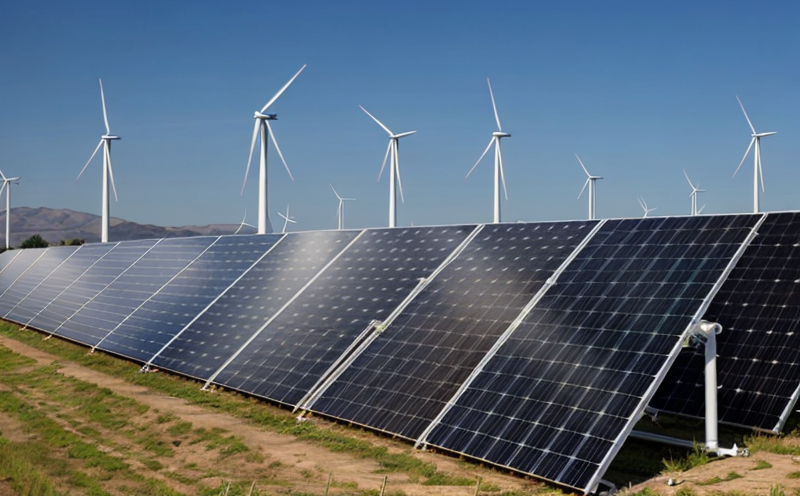EN 50530 Efficiency and Reliability Testing of PV Inverters
The EN 50530 standard provides a comprehensive framework for testing photovoltaic (PV) inverters, focusing on their efficiency and reliability. This international standard is crucial for ensuring that PV inverters meet stringent performance requirements in various environments across the globe. The testing encompasses a wide range of parameters including electrical performance, thermal management, durability, and safety features.
Efficiency testing evaluates how effectively an inverter converts DC power from solar panels into AC power suitable for household or industrial use. This is measured under defined operating conditions, often referred to as the standard test conditions (STC), which include a temperature of 25°C and an irradiance level of 1000 W/m². The efficiency tests are critical in determining the energy yield of a solar power system.
Reliability testing ensures that inverters can withstand harsh environmental conditions and operational stresses over their expected lifetime. This includes assessing factors such as voltage stability, current regulation accuracy, and fault detection capabilities under varying loads and temperatures. Additionally, EN 50530 mandates specific tests to evaluate the inverter’s ability to recover from faults without causing damage or safety hazards.
The standard also emphasizes the importance of compliance with international regulations aimed at reducing greenhouse gas emissions. By adhering to these standards, manufacturers can ensure that their products contribute positively to sustainable energy production and consumption.
In summary, EN 50530 plays a vital role in ensuring that PV inverters are not only efficient but also reliable under diverse conditions. This is particularly important for large-scale solar installations where the performance of each component directly impacts overall system efficiency and sustainability goals.
Applied Standards
The EN 50530 standard is part of a broader family of standards that regulate the design, installation, and operation of photovoltaic systems. It is closely aligned with other international standards such as IEC 61851-1, which covers the technical requirements for solar inverters and related equipment.
The specific focus of EN 50530 lies in ensuring that PV inverters meet certain performance criteria under various operating conditions. These include:
- Efficiency testing
- Thermal management evaluation
- Durability assessment
- Safety feature verification
The standard also mandates compliance with environmental standards, ensuring that inverters contribute to the reduction of carbon footprint. This is in line with global efforts towards sustainable development and renewable energy adoption.
By adhering to these stringent requirements, manufacturers can ensure their products are suitable for integration into diverse solar power systems worldwide, enhancing overall reliability and performance.
International Acceptance and Recognition
- Europe: EN 50530 is widely accepted in the European Union as a key standard for PV inverters. It ensures that products comply with EU directives on energy efficiency, environmental protection, and safety.
- United States: While not mandatorily required in the U.S., many companies choose to adhere to this standard to meet international market demands and ensure compatibility with global supply chains.
- Australia/New Zealand: The standard is recognized as it aligns well with local energy policies aimed at promoting renewable energy use.
- Asia-Pacific: Given the region's rapid growth in solar installations, EN 50530 enjoys strong acceptance across many countries in this area.
The widespread adoption of this standard underscores its significance in ensuring consistent quality and performance expectations for PV inverters globally. Compliance with these standards enhances marketability and facilitates smoother international trade.
Use Cases and Application Examples
EN 50530 efficiency and reliability testing is essential for a variety of applications, including:
- Solar Farms: Ensures that large-scale solar installations operate at peak performance levels.
- Residential Solar Systems: Guarantees reliable energy production in homes and small businesses.
- Commercial Buildings: Supports the integration of PV inverters into complex building systems for efficient power management.
- Solar Caravaning: Ensures portable solar solutions are robust enough to meet the needs of mobile living environments.
In each application, EN 50530 testing helps in identifying potential issues before deployment, thereby minimizing maintenance costs and maximizing system uptime. This is particularly beneficial for remote or hard-to-reach locations where repair services may be limited.
For instance, in a solar farm setting, rigorous testing ensures that inverters can handle extreme weather conditions without compromising performance. In residential settings, it guarantees consistent power supply even during peak demand periods. For commercial buildings and caravans, reliability is paramount to ensure continuous operation under varied environmental conditions.





